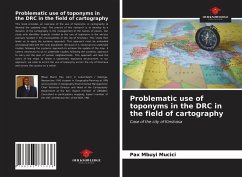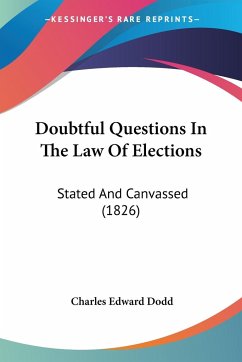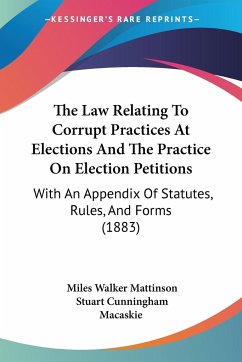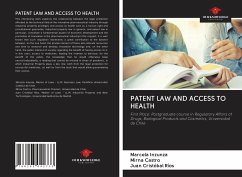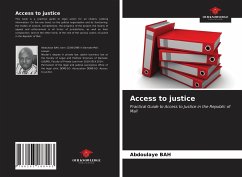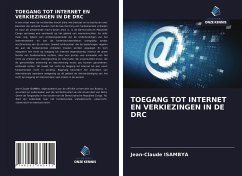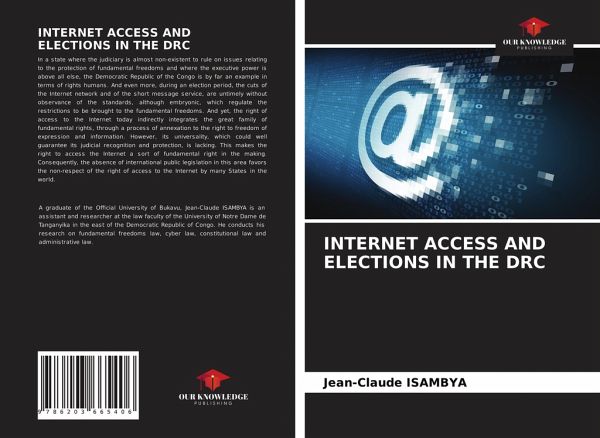
INTERNET ACCESS AND ELECTIONS IN THE DRC
Versandkostenfrei!
Versandfertig in 1-2 Wochen
36,99 €
inkl. MwSt.

PAYBACK Punkte
18 °P sammeln!
In a state where the judiciary is almost non-existent to rule on issues relating to the protection of fundamental freedoms and where the executive power is above all else, the Democratic Republic of the Congo is by far an example in terms of rights humans. And even more, during an election period, the cuts of the Internet network and of the short message service, are untimely without observance of the standards, although embryonic, which regulate the restrictions to be brought to the fundamental freedoms. And yet, the right of access to the Internet today indirectly integrates the great family...
In a state where the judiciary is almost non-existent to rule on issues relating to the protection of fundamental freedoms and where the executive power is above all else, the Democratic Republic of the Congo is by far an example in terms of rights humans. And even more, during an election period, the cuts of the Internet network and of the short message service, are untimely without observance of the standards, although embryonic, which regulate the restrictions to be brought to the fundamental freedoms. And yet, the right of access to the Internet today indirectly integrates the great family of fundamental rights, through a process of annexation to the right to freedom of expression and information. However, its universality, which could well guarantee its judicial recognition and protection, is lacking. This makes the right to access the Internet a sort of fundamental right in the making. Consequently, the absence of international public legislation in this area favors the non-respect of the right of access to the Internet by many States in the world.



